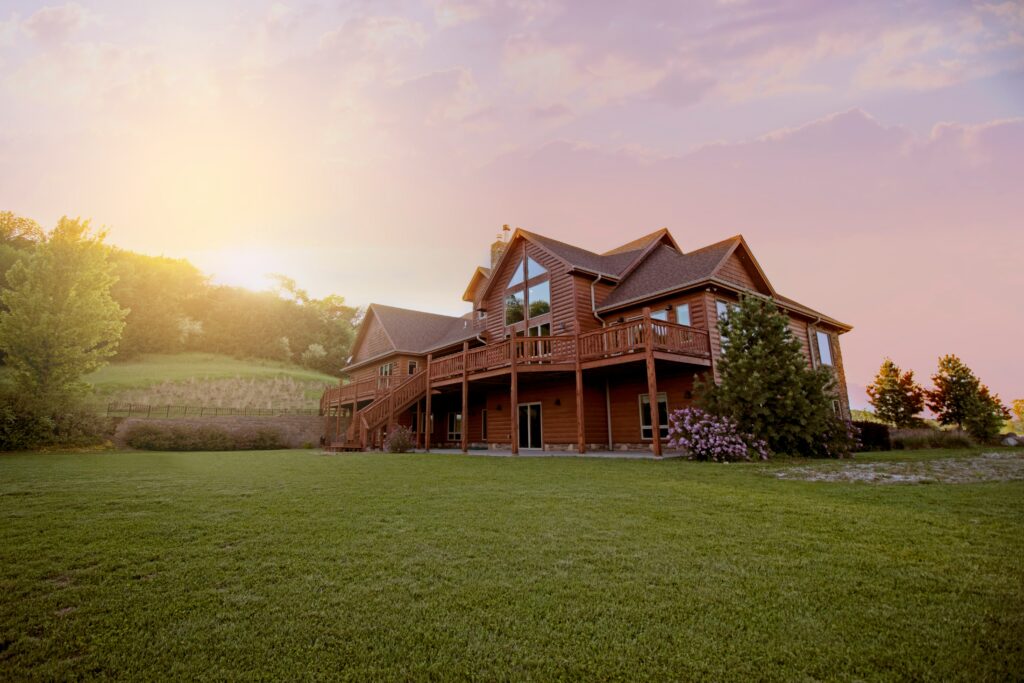
Introduction
Real estate investment has always been one of the most popular ways to build wealth. Whether it’s buying a family home, investing in a rental property, or acquiring a commercial building, real estate provides numerous opportunities to generate income and increase wealth over time. But when it comes to profitability, the big question remains: Which is more profitable—commercial real estate or residential?
Both investment types have their unique advantages, challenges, and profit potential. In this article, we’ll explore the differences between commercial and residential real estate, focusing on which tends to be more profitable and why.
Understanding Commercial Real Estate
What is Commercial Real Estate?
Commercial real estate refers to properties that are used for business purposes. These properties can range from office buildings and retail centers to warehouses, hotels, and apartment complexes. Essentially, any property that generates income through business activities falls under the commercial real estate category.
Types of Commercial Properties
Some common types of commercial properties include:
- Office buildings
- Retail spaces
- Industrial warehouses
- Multi-family apartment complexes (5 units or more)
- Hotels and motels
Each type of commercial property comes with its unique income potential, tenant base, and risk factors.
Benefits of Investing in Commercial Real Estate
Investing in commercial real estate can offer higher income potential, longer lease terms, and lower vacancy rates compared to residential properties. Additionally, many commercial properties experience significant value appreciation over time, especially in growing markets.
Understanding Residential Real Estate
What is Residential Real Estate?
Residential real estate encompasses properties used for housing. This includes single-family homes, duplexes, triplexes, and multi-family properties with four units or less. The primary purpose of residential real estate is to provide living space, either for homeowners or tenants.
Types of Residential Properties
Some types of residential properties include:
- Single-family homes
- Condominiums
- Townhouses
- Multi-family units (4 units or less)
Benefits of Investing in Residential Real Estate
Residential properties offer a more accessible entry point for many investors, and there is a consistent demand for housing. Many investors prefer residential real estate due to its stability and the emotional factor that drives home purchases.
Profitability in Commercial Real Estate
Rental Income and Cash Flow
One of the most attractive aspects of commercial real estate is the potential for higher rental income. Commercial tenants typically pay more rent than residential tenants, and leases are often longer, providing stable cash flow for extended periods.
Appreciation Potential
Commercial properties tend to appreciate significantly in value over time, particularly in well-located areas with economic growth. As businesses thrive, demand for commercial space increases, driving up property values.
Longer Leases and Lower Vacancy Rates
Commercial tenants typically sign long-term leases, sometimes lasting 5-10 years or more. This creates a stable income stream and reduces the frequency of vacancies compared to residential properties.
Profitability in Residential Real Estate
Rental Demand and Market Stability
Residential real estate benefits from the consistent demand for housing. People always need a place to live, so residential properties are typically easier to rent out, especially in high-demand areas.
Appreciation and Home Value Growth
Residential properties, particularly single-family homes, often appreciate steadily over time. Homeownership is a key part of wealth-building for many families, and this steady demand can drive appreciation, especially in desirable locations.
Shorter Leases and Higher Turnover Rates
In residential real estate, leases are usually shorter—typically 12 months for rental properties. This means more frequent tenant turnover, which can lead to periods of vacancy and added management challenges.
Risk Factors in Commercial Real Estate
Market Cycles and Economic Conditions
Commercial real estate is more closely tied to economic cycles. When the economy is strong, businesses expand, and demand for commercial space increases. However, during economic downturns, businesses may downsize or close, leading to vacancies.
Financing Challenges
Securing financing for commercial properties can be more complex and require larger down payments and higher interest rates compared to residential mortgages.
Management and Operational Costs
Commercial properties often require more management and have higher operational costs, including maintenance, security, and property taxes.
Risk Factors in Residential Real Estate
Tenant Turnover and Vacancy
Residential properties tend to have higher tenant turnover, particularly in rental markets. Frequent tenant changes can result in periods of vacancy, reducing overall profitability.
Property Maintenance and Repairs
Maintaining a residential property can be costly, especially for older homes. Landlords are responsible for repairs, which can cut into profits if unexpected issues arise.
Economic Sensitivity in Local Markets
While residential real estate is generally more stable than commercial, local economic conditions can affect housing demand and property values. Areas with declining populations or job losses may see reduced profitability.
Cash Flow Comparisons: Commercial vs. Residential
Commercial Cash Flow Characteristics
Commercial properties often generate higher cash flow than residential properties due to larger rental payments and longer lease terms. However, this can be offset by higher management costs and the potential for extended vacancies.
Residential Cash Flow Characteristics
While residential cash flow may be lower, especially for single-family homes, it can still provide steady income. Multi-family units with multiple tenants can help maximize rental income.
Which Typically Offers Better Cash Flow?
In general, commercial real estate tends to offer better cash flow than residential properties, especially in high-demand markets with strong tenant bases.
Appreciation Comparisons: Commercial vs. Residential
Long-Term Value Growth in Commercial Properties
Commercial properties often appreciate faster than residential properties, particularly in growing urban areas. The combination of increasing demand for business space and limited supply can drive significant value growth.
Long-Term Value Growth in Residential Properties
Residential properties, particularly in desirable neighborhoods, can also appreciate well over time. Single-family homes tend to see more stable growth, driven by demand from homebuyers.
Which Typically Appreciates More Over Time?
While both commercial and residential properties can appreciate over time, commercial real estate often experiences higher rates of appreciation, particularly in rapidly growing markets.
Conclusion
When it comes to profitability, both commercial and residential real estate offer unique advantages. Commercial real estate typically provides higher cash flow and appreciation potential, but it comes with more risk and management challenges. Residential real estate, while more stable and easier to manage, may offer lower returns. Ultimately, the decision between the two depends on your risk tolerance, investment goals, and market knowledge.
FAQs
- Which is riskier: commercial or residential real estate?
- Commercial real estate is generally riskier due to its sensitivity to economic cycles, but it can also offer higher returns.
- Is commercial real estate harder to finance than residential?
- Yes, financing commercial properties can be more challenging due to stricter loan terms and larger down payments.
- Which type of real estate appreciates more?
- Commercial real estate tends to appreciate faster than residential in high-growth markets, but residential properties can also see steady appreciation.
- Can I invest in both commercial and residential real estate?
- Yes, many investors diversify by owning both commercial and residential properties to balance risk and reward.
- Which is better for beginners: commercial or residential real estate?
- Residential real estate is generally easier for beginners to understand and manage, while commercial requires more experience and capital.

